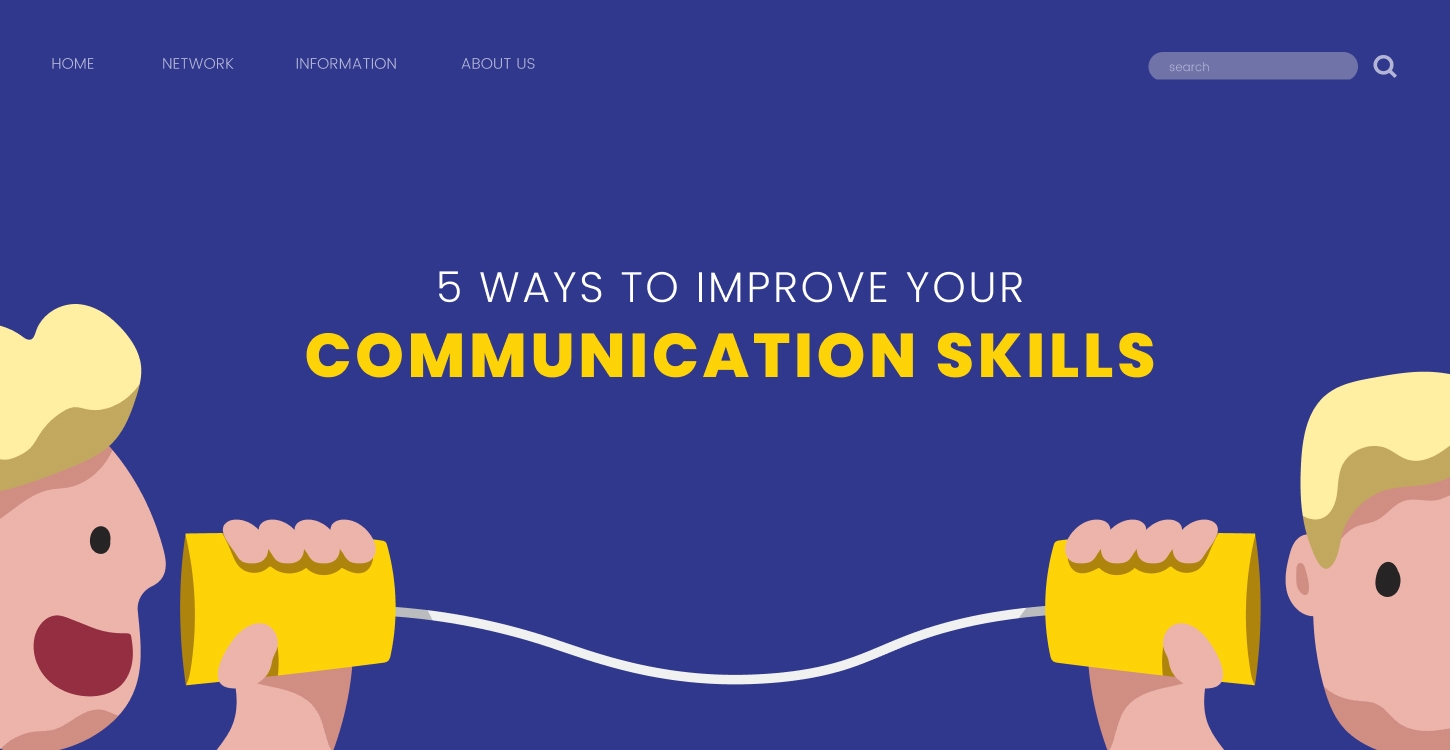Did you know the war between the United States and Japan that led to the atomic bombs being dropped on two Japanese cities actually happened because of miscommunication? The problems included the fact that the representatives of both countries used different languages and could not set the priorities in their words.
Miscommunication happens daily at work or at home. Communication is the key, and being a strong communicator gets you far in life. Though not everyone is a born communicator, there are proven ways to improve your communication skills.
With the rise of social media networking and texting, communication is becoming more casual, even in situations where more formal communication methods are required. What this means is that people from the younger generation, may not know or even understand the importance of effective communication skills in the workplace.
Also read: Your ultimate guide to personal branding
Types of Communication
There are three types of communication; Verbal, Nonverbal and Written. There is also visual communication but we’ll discuss that at another time. For now, let’s look into 3 major types of communication.
Verbal: The most commonly used medium for communication. Verbal communication occurs when we connect in speaking with others. It can be face-to-face, over the telephone or through other video calling apps.
Non-Verbal: We communicate more than just the content of the word. It includes the entire gamut of physical postures and gestures, tone and pace of voice, and the attitude with which you communicate.
Use the following actionable tips to make your non-verbal communication more effective.
- Pay attention to non-verbal signals: Action speaks louder than words. People can convey a lot of information through their body language. Things like eye contact, gestures, posture, body movements, and tone of voice. All these signals convey important information that is not put into words.
- Focus on your tone: What you say and how you say it equally matters. Your vocal tone plays a vital role in how your message is conveyed. To make a meaningful conversation we should endeavour to speak in a calm and professional tone.
- Maintain eye contact: Eye contact is the most important signal to convey that you’re paying attention. Maintaining steady eye contact while speaking to a person you’re talking to indicates that you’re trustworthy.
- Body language and facial expression: The way you move and carry yourself communicates a wealth of information to the world. Great perception of you can be conveyed by the way you sit, walk, stand or hold your head.
Also read: 5 ways to improve your English
5 ways to improve your communication skill
1. Listen with all your heart
We cannot stretch on how important listening skill is for effective communication. A good communicator is always an active listener. Pay close attention to the people you’re listening to with affirmative replies and asking follow-up questions to indicate that you’re paying attention and to avoid misunderstandings. An important point is to have one conversation at a time. At that moment, the person speaking to you should be the most important person in your life.
Make sure you listen without judgment. That’s the goal of every conversation, but especially if you hear responses that are unexpected or different than you anticipate.
2. Improve your Nonverbal Communication
Mastering nonverbal cues and nonverbal signals can help prevent miscommunication and signal interest to those around you. To begin improving your non-verbal communication first, you got to start by paying attention to it. Small nuances make significant differences in how your communication is received. Eye contact, facial expressions, body language, appropriate gestures and attire all account for nonverbal communication.
Mirroring the person you’re talking to is an easy and effective way to ensure you’re practising good communication skills. If the other individual is maintaining eye contact, you should do the same. If they are slightly bent forward to promote easier speech, you could also bend forward a little bit. Mirroring someone’s cues can encourage trust and show confidence.
3. Take your time
Take your time to make a thoughtful response. The spontaneous response often reflects the mood you’re in. If you’re in a professional setting, it’s necessary to keep your emotions in check. If you have trouble managing your emotions, take a moment for a few deep breaths before speaking.
Taking a moment before responding also allows you to evaluate what you’re about to say and how you say it. It also gives you enough time to rephrase your sentence in a way that is most effective.
4. Ask questions and request feedback
There is no shame in asking questions. As with most leadership skills, receiving honest feedback from peers, managers and members of your team is critical to becoming a better communicator. If you regularly solicit feedback, others will help you to discover areas for improvement that you might have otherwise overlooked.
5. Watch your tone
Tone can be an especially important factor in workplace disagreements and conflict. A well-chosen word with a positive connotation creates goodwill and trust. A poorly chosen word with unclear or negative connotations can quickly lead to misunderstanding. How you say something matters just as much as what you say.
In real-time, it can be challenging to control tone to ensure that it matches your intent. But being mindful of your tone will enable you to alter it appropriately if communication seems to be going in the wrong direction.
These were our five primary tips to improve your communication skills. Mind you, like any other skill, it takes a lot of practice to develop. Strong communication skills grow and evolve just as your personal and professional relationships grow and evolve.
As you embark on developing these macro and micro-level communication skills, you’ll find yourself building mutually supportive relationships. This ability will make a vital difference in building a harmonious relationship with your peers and your coworkers.









